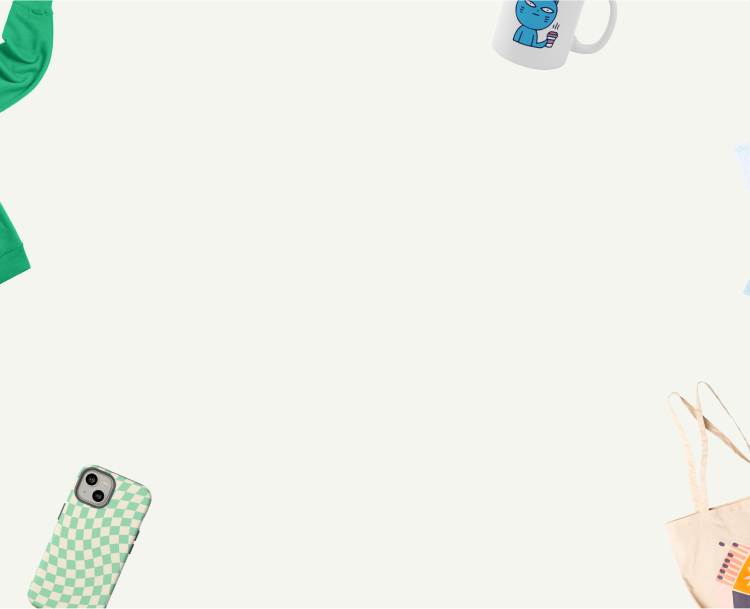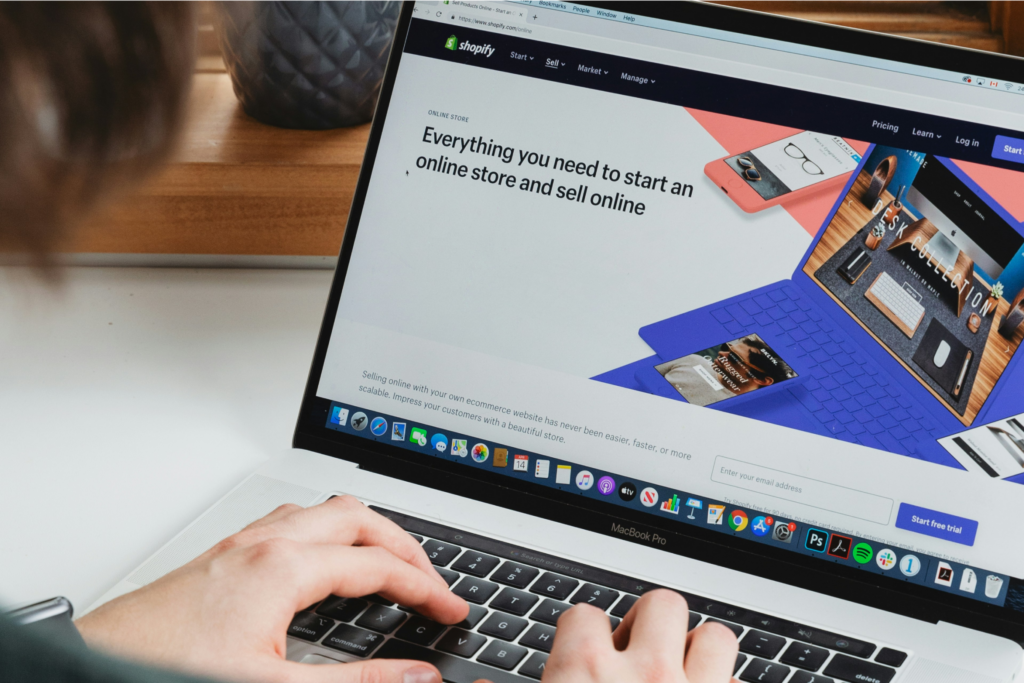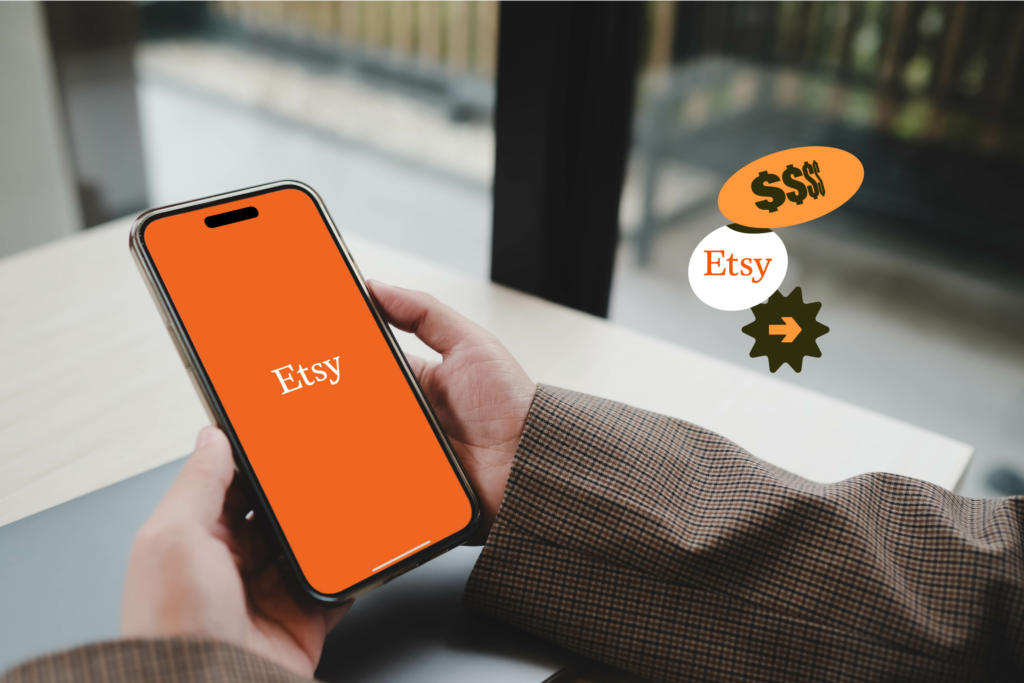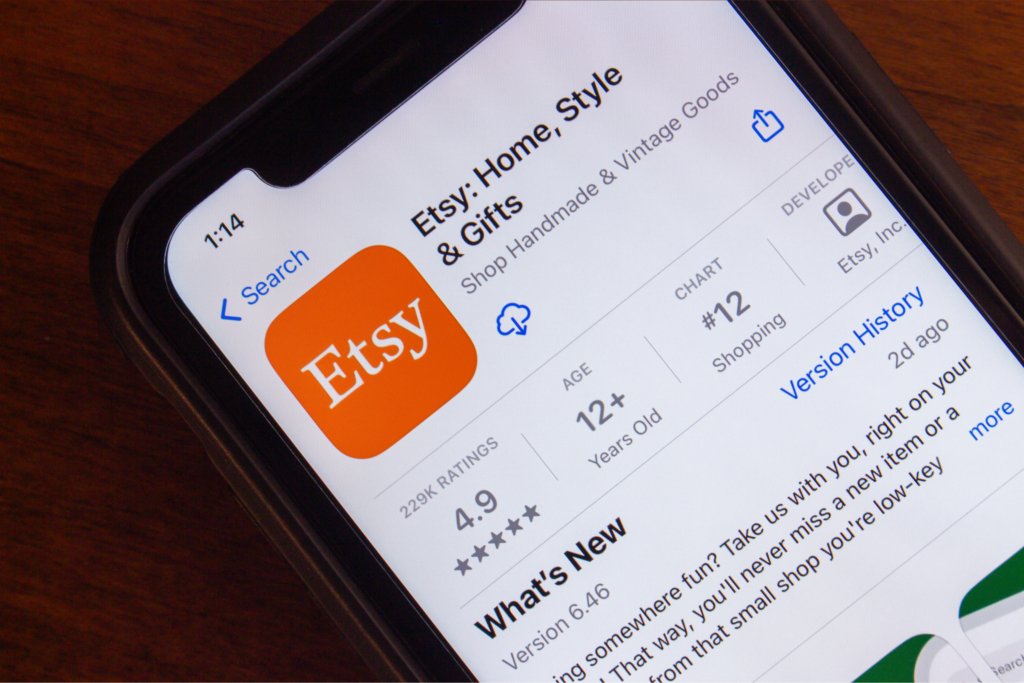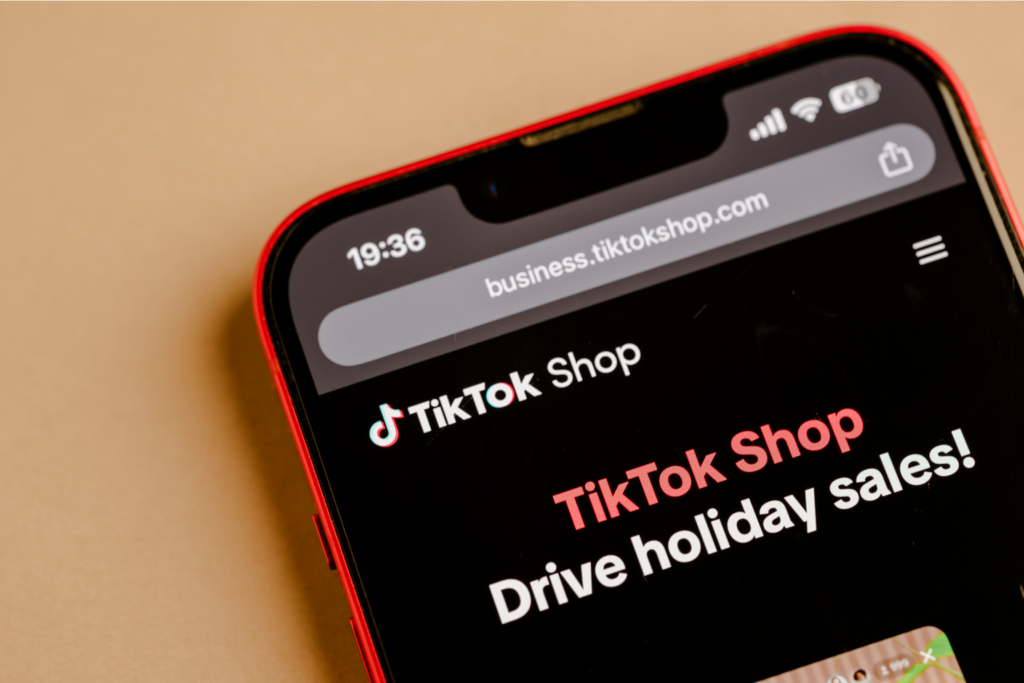Printify + your favorite platform = more sales!
Launching an online store in 2026? Picking the right eCommerce platform is one of the biggest first steps.
Two of the most talked-about options are Big Cartel vs Shopify, but they’re built for very different types of sellers.
In this guide, we’ll break down the key differences between Big Cartel vs Shopify – from pricing and features to ease of use and customization – to help you decide which one is the best fit for your business.
Key takeaways
- Big Cartel is ideal for beginners with small product catalogs. It offers a free plan and simple setup, but lacks advanced features and app integrations unless you upgrade.
- Shopify is better for scaling, with powerful inventory tools, marketing automation, and access to thousands of third-party apps – though it comes with a higher monthly cost.
- Big Cartel’s design tools are more flexible than they seem, allowing font and layout tweaks without code, but integration scripts require a paid plan.
- Shopify offers stronger SEO, analytics, and customization, though it can feel less intuitive to manage as your store grows more complex.
- Both platforms integrate with Printify, letting you sell custom products without inventory. However, only Shopify supports it natively – Big Cartel requires API integration.
Shopify vs Big Cartel: An overview
Before we get into the details, here’s a quick side-by-side look at how these two eCommerce platforms stack up:
| Feature | Big Cartel | Shopify |
|---|---|---|
| Ease of use | Very beginner-friendly; minimal setup | Also user-friendly, but offers more complex features |
| Store management | Best for small catalogs; no advanced stock tools | Great for larger inventories and detailed inventory tracking |
| Pricing | Offers a free plan and low-cost paid plans | Monthly Shopify pricing plans start at a higher tier |
| Technical features | Limited, no advanced features like abandoned cart recovery | Packed with advanced features for serious sellers |
| Analytics | Basic sales stats only | Rich reporting and an advanced report builder |
| Design features | Clean and simple templates; limited customization options | Highly customizable with freeand paid themes |
| Marketing and sales | Basic promo tools only | Strong marketing features and automation |
| SEO | Basic meta and title editing | Full SEO tools and controls |
| Apps market | Very limited third-party apps and app integrations | Massive ecosystem through Shopify’s App Store |
| Customer support | Limited to email support (no phone or chat); see: customer support Big Cartel | 24/7 live chat and phone support available |
Big Cartel vs Shopify compared
Let’s dive deeper into how Big Cartel and Shopify compare across the key areas that matter most to small business owners and entrepreneurs.
Ease of use

Big Cartel is built for simplicity. Its user-friendly interface makes it perfect for artists, makers, and beginners who want to start selling online quickly – no coding or advanced settings required. Launch a Big Cartel store in under an hour with minimal setup.
Shopify also offers a guided setup, but managing it day-to-day is less intuitive. More tools and settings mean a steeper learning curve, especially as your store grows. Expanding often requires third-party apps, which adds extra steps and complexity. Still, the tradeoff can be worth it for sellers who want flexibility and scalability.
Store management
How you manage your store’s backend can make or break your daily operations. And when it comes to Big Cartel vs Shopify, the difference in flexibility is hard to ignore.
Big Cartel is easy to set up, but that comes with some limitations. On the free plan, you can only list five products and can’t connect to any integrations, including print-on-demand providers. That may work for creators selling just a few handmade items, but not for those who need third-party tools or automation.
The Platinum plan bumps the product limit to 50 and unlocks inventory tracking and discount codes. Still, even paid plans offer minimal store management. There’s limited support for bulk editing, syncing across sales channels, or complex fulfillment. As your catalog grows or you expand to multiple platforms, these limitations can start to get in the way.
Shopify, on the other hand, is built to support stores of all sizes. It offers strong inventory management features like real-time stock updates, barcode and SKU tracking, multi-location inventory, and low-stock alerts. Manage hundreds or thousands of products, bundle items, and automate fulfillment – all from one dashboard.
Pricing
Here’s where Big Cartel shines: it has a completely free plan (up to five products), with Big Cartel pricing increasing slightly for paid plans ($9.99/month and $19.99/month). It’s one of the most affordable eCommerce platforms on the market.
Shopify pricing plans start at $39/month for the Basic Shopify plan, with additional tiers for growing businesses. While Shopify doesn’t have a free plan, it often runs $1/month trials to get started. With the Starter plan ($5/month), Shopify supportsselling via links and messaging apps.
Big Cartel pricing
| Plan | Monthly price | Annual price | Features |
|---|---|---|---|
| Gold | Free | Free | 5 products, 1 image/product, real-time stats, basic design tools |
| Platinum | $15/month | $12/month(billed annually at $144) | 50 products, 5 images/product, inventory tracking, discount codes, Google Analytics |
| Diamond | $30/month | $24/month(billed annually at $288) | 500 products, 25 images/product, advanced analytics, abandoned cart recovery |
No transaction fees from Big Cartel, but standard Stripe or PayPal fees apply.
Shopify pricing
| Plan | Monthly price | Annual price | Features |
|---|---|---|---|
| Starter | $5/month | Not available annually | Sell via links and messaging apps, basic analytics |
| Basic | $39/month | $29/month(billed annually at $348) | Full online store, 2 staff accounts, POS Lite, 24/7 support |
| Shopify (Grow) | $105/month | $79/month(billed annually at $948) | 5 staff accounts, advanced reporting, better payment rates |
| Advanced | $399/month | $299/month(billed annually at $3,588) | 15 staff accounts, custom reports, 3rd-party shipping rates |
| Shopify Plus | Starts at $2,300/month | Custom pricing (3-year term) | Enterprise-grade automation, unlimited staff, dedicated support |
Shopify payments:
- Basic: 2.9% + $0.30 online / 2.7% in person
- Grow: 2.7% + $0.30 online / 2.5% in person
- Advanced: 2.5% + $0.30 online / 2.4% in person
Third-party gateways and major credit cards charge extra fees.
When comparing monthly fees, Big Cartel is the more affordable choice, but you’ll be trading off many advanced features.

Technical features
Big Cartel is a lightweight eCommerce platform designed for simplicity. It’s aimed at artists, makers, and small businesses who want a quick way to launch a store without getting overwhelmed. Its features are intentionally minimal:
- Add product variants such as size and color
- Abandoned cart recovery and inventory tracking (paid plans only)
- Apply discount codes
- Send order confirmations and enable shipment tracking
- Accept credit card payments through Stripe, PayPal, and other supported payment gateways

However, some advanced capabilities are missing. The platform doesn’t provide built-in automation, localized checkout, or international selling tools such as multi-currency, which limits its appeal for merchants with complex or growing operations.
Shopify, on the other hand, is a feature-rich, comprehensive platform built to support stores of all sizes, including those with advanced workflows. It includes:
- Real-time shipping options with calculated rates
- Automated tax settings for different countries and regions
- Shopify POS for accepting in-person payments
- Abandoned cart recovery and email automation
- Custom scripts and checkout logic (on higher-tier plans)
- Multi-currency support and localization
- Access to multiple payment gateways, including Shopify Payments, Apple Pay, and Google Pay
- Developer access to APIs and advanced integrations

These advanced features make Shopify ideal for merchants who want full control over the customer journey, backend automation, and international growth. If your online business requires customization, scalability, and flexibility, Shopify offers the tools to make it happen.
Analytics
Big Cartel includes basic analytics, which may suit beginners or small businesses with simple tracking needs. The dashboard shows:
- Total sales and orders
- Most viewed and best-selling products
- Basic traffic stats (visits and referrers)
These insights cover surface-level performance. There’s no profit tracking, customer behavior analysis, or trend data. To access Google Analytics or TikTok Pixel, you’ll need a paid plan. Even then, deeper insights have to be handled outside the platform.

Shopify, by comparison, offers a far more robust analytics suite. Every Shopify store includes:
- Sales, product, and traffic overviews
- Real-time reporting
- Customer demographics and purchase behavior
- Marketing campaign tracking
- Visual dashboards with customizable filters
- An advanced report builder (available on higher-tier plans)
- Integration with third-party tools like Google Analytics and Facebook Ads Manager
These analytics are designed to support data-driven decisions for growth, customer retention, and marketing performance. Whether you want to measure ad ROI, understand conversion trends, or track multi-channel performance, Shopify offers the visibility you need to scale confidently.
For merchants who rely on clear, actionable insights, Shopify is the stronger platform.
Design features
Your store’s design is often the first thing customers notice, so flexibility and control matter. Both Big Cartel and Shopify give you ways to build a visually strong store, but they take different approaches.
Big Cartel’s templates are clean, mobile-friendly, minimal, and easy to launch. With over ten themes, it’s a great fit for artists and creators looking for a minimal aesthetic. Customize fonts, headers, footers, menus, and layout elements directly from the dashboard – no coding required.
For deeper edits, add custom CSS or code snippets. Just note that Big Cartel’s free plan doesn’t support integration codes, such as tracking pixels or external scripts, requiring upgrading.

Shopify offers more design variety, with dozens of premium and free themes for different industries. Its drag-and-drop builder lets you rearrange sections, edit product pages, and adjust branding without coding.
However, the builder can be less intuitive when changing layouts beyond preset options. Advanced edits still require code.

If you want extensive customization options, almost full creative control, and the ability to scale your store’s design as your business grows, Shopify offers more options. But for many small businesses or independent creators, Big Cartel’s simple and flexible setup is more than enough.
Marketing and sales features
Big Cartel covers the basics but leaves out many of the tools sellers often rely on to grow. You can create simple discount codes and connect a Facebook Pixel or Google Analytics, but only on a paid plan.
There are no built-in email marketing tools, no abandoned cart recovery, and no native upselling features. It also doesn’t support its own payment gateway, meaning you’re limited to Stripe or PayPal for payment processing without the option to customize checkout promotions or offer payment-based discounts.
Shopify offers a more complete suite of marketing features right out of the box. You can send email campaigns, automate abandoned cart follow-ups, and generate targeted discounts.
The platform supports integrations with messaging apps like Facebook Messenger and WhatsApp, supports Shopify Payments, Apple Pay, and Google Pay, and lets you customize checkout flows through apps or built-in logic. For sellers looking to actively promote products and increase online sales, Shopify offers more flexibility and built-in value.
SEO
Big Cartel offers very limited SEO tools. You can manually edit page titles and product descriptions, which helps with basic visibility, but that’s about it. There’s no built-in support for sitemaps, structured data, custom URL slugs, or 301 redirects.
The platform also lacks blogging, which is a major drawback for sellers who want to attract organic traffic through content marketing. These limitations make optimizing your online store for search engines harder over time.
Shopify provides a more complete set of SEO tools. Every store includes automatic sitemap generation, customizable meta titles and descriptions, editable URLs, and built-in support for 301 redirects and canonical tags.
You also get access to a full blogging feature, which is essential for targeting keywords, building backlinks, and improving long-term rankings. Shopify apps can further enhance your SEO by adding schema markup, image optimization, and real-time performance suggestions.
For sellers serious about visibility, traffic, and long-term growth, Shopify offers the infrastructure needed to scale your eCommerce business through search.
App market
The difference in app availability between Big Cartel vs Shopify is significant, especially if you want to expand your store’s functionality.
Big Cartel’s app market is small, offering just over 30 third-party integrations. These include tools like Google Analytics, Mailchimp, Zapier, and Printful. However, you can only access these app integrations on a paid plan.
The Gold (free) plan doesn’t support any external apps, which limits your ability to connect marketing tools, automate tasks, or enhance your checkout process.

Shopify’s App Store, on the other hand, includes over 8,000 apps across categories such as email marketing, inventory management, product reviews, dropshipping, SEO, and shipping automation. These apps help streamline your operations, boost conversion rates, and connect your store to platforms like Printify, TikTok, and QuickBooks. Shopify shipping also offers discounts on several local postal services.
Many apps are free or offer trial versions, integrating smoothly with Shopify’s interface. This gives sellers the freedom to build out a fully customized storefront tailored to their specific business needs.

If you need flexibility, automation, or room to scale, Shopify’s app ecosystem is far broader and more powerful than Big Cartel’s.
Customer support
Big Cartel offers limited customer support. Assistance is available only via email, with no phone or live chat.
While there’s a help center with support articles, response times to Big Cartel users can take anywhere from 24 to 48 hours, which may be frustrating if you need quick solutions.
Shopify offers 24/7 support via live chat, email, and phone. It also provides a detailed help center,video tutorials, and an active community forum.
However, assistance often starts with automated prompts, which can make getting answers less direct than expected.
Start an online store with Printify

No matter which platform you choose – Big Cartel or Shopify – you can easily connect your online store to Printify to sell custom products without managing inventory.
Printify is a print-on-demand platform that lets you design and sell t-shirts, mugs, phone cases, home decor, and hundreds of other products. We handle printing and shipping, so you can focus on creating and marketing.
- Sell without additional costs besides the platforms’ plans
- Sync with Shopify (via our Shopify integration) or Big Cartel (via Printify API)
- Fulfilled automatically by trusted Print Providers
Ready to launch?
Connect your store to Printify and start selling online with zero inventory stress.
FAQ
Is Big Cartel better than Shopify? It depends on your needs. If you’re just starting out or want a simple, budget-friendly option, Big Cartel may be enough. But if you need advanced features, inventory management, and deep customization, Shopify is better for long-term growth.
Not directly. You can’t run a Big Cartel store and a Shopify store simultaneously from one dashboard, but you can manually move products or switch platforms entirely. There are also tools and services available to help you migrate your catalog from Big Cartel to Shopify if you decide to make the switch.
Yes! Big Cartel is still popular among creators, artists, and small business owners who want a lightweight, easy-to-use platform. Its free plan and straightforward setup make it appealing to people looking for a low-risk way to start selling online.
Big Cartel vs Shopify: Which to choose?
So – Big Cartel vs Shopify: which platform is right for your eCommerce business in 2025?
- Choose Big Cartel if you’re a maker, artist, or small brand selling fewer than 50 products, and value simplicity and low costs. It’s one of the few platforms still offering a free plan.
- Choose Shopify if you’re looking to build a scalable online store with powerful tools, an advanced report builder, full control over design, and access to a huge ecosystem of third-party apps and marketing features.
Ultimately, it’s about choosing the platform that fits your goals, budget, and product range.
Whichever you choose, don’t forget – you can connect your store with Printify to start selling custom products, fulfill orders automatically, and grow your brand with ease.
